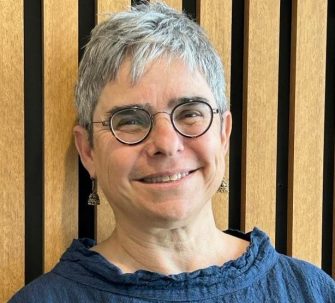
The Population Child Health (PCH) Research Group is a multidisciplinary research team working across Australia and internationally from the University of New South Wales (UNSW) Randwick precinct and Sydney Children’s Hospitals Network (SCHN). We conduct translational health services and health systems research to optimise child health outcomes and address inequities.
Our goals
We improve quality of care, integrate services, promote equity and enhance access for the ultimate benefit of children and young people.
Our objectives are to:
- Work with children and young people to discover the factors affecting their health, wellbeing, and access to the care they need.
- Conduct translational research that focuses on sustainably tailoring health systems to the needs of children and young people.
- Develop, implement, and evaluate scalable interventions that can be delivered by existing practitioners to increase access to high quality paediatric care for all children.
Research strengths
Central to our work is Consumer and Community Engagement. Our multidisciplinary research brings together clinicians across paediatric disciplines within health services. Our researchers have expertise in epidemiology, statistics, implementation science, qualitative research methods and economics. We assess the impact, implementation, and cost effectiveness of novel models of care and health innovations delivered across the health system embedded within gold standard health systems randomised controlled trials, quasi-experimental studies, and longitudinal cohorts.
Our partners include Sydney Children’s Hospitals Network (SCHN), Local Health Districts (LHDs), NSW Health, Aboriginal Controlled Community Health Organisations (ACCHOs), Primary Health Networks (PHNs) and the national Child Unlimited Network. With our partners we embed child health, implementation science and health economics researchers into health service initiatives to inform policy and service delivery.
Our results

383 peer-reviewed publications, $42 million funding successes.

Growth of our team and building research projects.

Broadened national and international research networks.
2023-24
19 academic and professional staff
$9.8m successful grants
8 HDR students
20 projects
100+ links with external partners
2021-22
14 academic & professional staff
> $13.8 million successful grants
4 HDR students
> 20 projects
100+ links with external partners
2020
14 academic & professional staff
> $4.5 million successful grants
4 HDR students
> 15 projects
100+ links with external partners
2019
8 academic & professional staff
> $5 million successful grants
4 HDR students
> 10 projects
International collaborations
2018
6 academic & professional staff
> $1.3 million successful grants
4 HDR students
Established 3 streams
Exciting News: PCH Projects Named Finalists in the 2024 NSW Health Awards!
We are thrilled to announce that two projects involving the Population Child Health Research Group have been named finalists in this year’s NSW Health Awards!
- Rural Paediatric Complex Care Coordination Service (RuralKidsGPS) – Finalist for the Health Innovation Award., opens in a new window
- Providing Enhanced Access to Health Services (PEACH) – Finalist for the Excellence in Multicultural Healthcare Award., opens in a new window
Our experts
Our extended team
Jackie Curtis, Shanti Raman, Valsamma Eapen, Paul Chay, Michelle Jersky, Natasha Larter, Louise Sealy, Vanessa Sarkozy, Ingrid Wolfe, James John, Alicia Montgomery.
Adjuncts
Students
Our affiliated partners
- George Institute of Global Studies
- Endocrinology, Garvan Institute and St Vincents Hospital
- Renal Medicine, St Vincents Hospital and Prince of Wales Hospitals
- Australian Institute of Health Innovation, Macquarie University
- Infectious Diseases, St Vincent’s Hospital
- Faculty of Pharmacy, University of Sydney
- Institute of Musculoskeletal Medicine, University of Sydney
- Australian and New Zealand Musculoskeletal Studies Clinical Trials Network
Project overview
Our research addresses 3 key themes: Integrating Care; Priority Populations and the First 2000 Days.

Our evidence-based projects aim to improve quality of care, integrate services, promote equity, and enhance access for the ultimate benefit of children and young people. We work with children, young people, parents/carers and families by recruiting people with lived experience of chronic and complex diseases to act as research advisors. All our projects include impact evaluation (outcomes: health service use; patient-reported outcomes such as quality of life; patient-reported experiences), economic analysis (including cost-effectiveness analysis), and implementation evaluation.
- Integrating Care
- First 2000 Days
- Priority Populations
- International Research and Advocacy
- Health Systems Research Leadership
First 2000 Days
Priority Populations
International Research and Advocacy
Our team collaborates with researchers and clinicians globally to support international child health research and advocacy. Professor Karen Zwi led the development of a published Global Position Statement on the impact of COVID-19 on vulnerable children and youth. We are also working with universities and health services in Fiji and Indonesia to develop evidence-based interventions to support children with neurodevelopmental disorders. We work closely with colleagues in King’s College London and have run programs in India, Pakistan, Uganda, and Mozambique. The Spring Program has informed enhancements of the Lady Health Worker Program in Pakistan and the Asha Worker Program in India. It has been adopted in the participating states and presented at the WHO. The Inscale program has led to development of telehealth (mobile phone) enhancements of the IMCI program in Uganda and Mozambique. It has informed further development of Community services during the Covid Pandemic.



























